
The Enchanting Luberon: A French Countryside Gem
Nestled in the heart of Provence, the Luberon region in France is a captivating blend of picturesque villages, stunning landscapes, and rich history. Known for its rolling hills, vineyards, and lavender fields, Luberon offers a serene escape from the hustle and bustle of city life. Each village has its own unique charm, from the ochre cliffs of Roussillon to the medieval streets of Gordes. The Luberon is also a haven for outdoor enthusiasts. With numerous hiking and biking trails, visitors can explore the natural beauty of the region at their own pace. The Luberon Regional Nature Park is a must-visit, offering a diverse range of flora and fauna. For those interested in culture, the region is home to many historic sites, including ancient abbeys, castles, and Roman ruins. Gastronomy is another highlight of the Luberon. The local markets brim with fresh produce, artisanal cheeses, and fine wines. Enjoy a leisurely meal at a traditional bistro or indulge in gourmet dining at one of the region's Michelin-starred restaurants. The Luberon truly offers a rich tapestry of experiences, making it an unforgettable destination for travelers.
Local tips in Luberon
- Visit the local markets early in the morning for the freshest produce and best selection.
- Rent a bike to explore the scenic trails and vineyards at your own pace.
- Plan your visit during the lavender season, typically from late June to early August, for breathtaking views.
- Stay in a local bed and breakfast for an authentic experience and warm hospitality.
- Don't miss the sunset views from the hilltop village of Gordes; they are truly spectacular.
The Enchanting Luberon: A French Countryside Gem
Nestled in the heart of Provence, the Luberon region in France is a captivating blend of picturesque villages, stunning landscapes, and rich history. Known for its rolling hills, vineyards, and lavender fields, Luberon offers a serene escape from the hustle and bustle of city life. Each village has its own unique charm, from the ochre cliffs of Roussillon to the medieval streets of Gordes. The Luberon is also a haven for outdoor enthusiasts. With numerous hiking and biking trails, visitors can explore the natural beauty of the region at their own pace. The Luberon Regional Nature Park is a must-visit, offering a diverse range of flora and fauna. For those interested in culture, the region is home to many historic sites, including ancient abbeys, castles, and Roman ruins. Gastronomy is another highlight of the Luberon. The local markets brim with fresh produce, artisanal cheeses, and fine wines. Enjoy a leisurely meal at a traditional bistro or indulge in gourmet dining at one of the region's Michelin-starred restaurants. The Luberon truly offers a rich tapestry of experiences, making it an unforgettable destination for travelers.
When is the best time to go to Luberon?
Iconic landmarks you can’t miss
Le Sentier des Ocres
Explore Le Sentier des Ocres, a stunning hiking area in Roussillon, where vibrant ochre cliffs meet rich history and diverse wildlife in a picturesque setting.
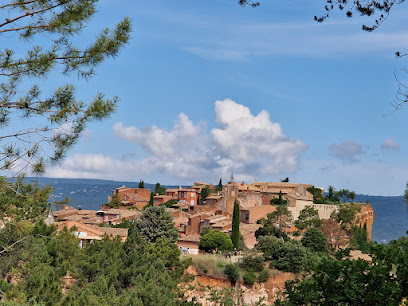
Parc naturel régional du Luberon
Discover the enchanting beauty of Parc naturel régional du Luberon, a haven for nature lovers and a cultural gem in the heart of Provence.
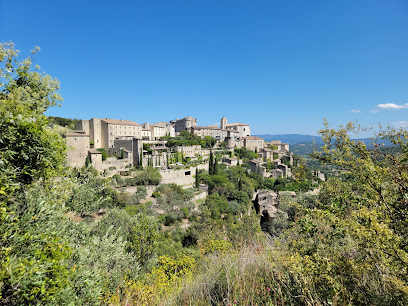
The Provençal Colorado
Explore the stunning ochre cliffs and vibrant landscapes of the Provençale Colorado, a unique hiking area rich in history and natural beauty.
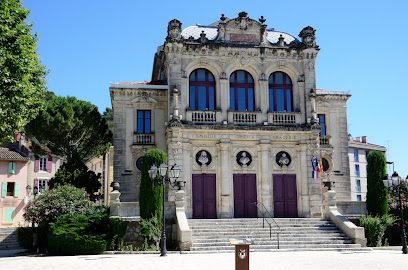
Abbaye Notre-Dame de Sénanque
Experience the serenity and historical significance of Abbaye Notre-Dame de Sénanque, a must-visit Cistercian abbey set amidst breathtaking lavender fields.
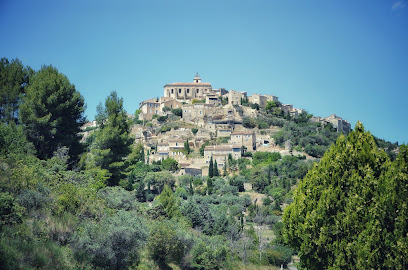
Château de Lourmarin
Experience the majestic Château de Lourmarin, a stunning Renaissance castle in Provence, combining history, art, and breathtaking landscapes.
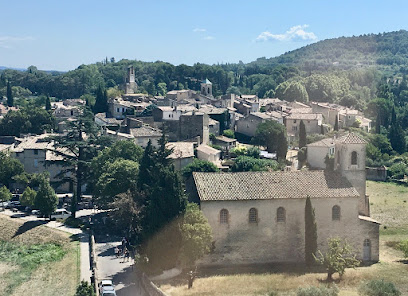
Village des Bories
Experience Provence's rich cultural heritage at Village des Bories, an enchanting open-air museum of traditional dry-stone architecture.
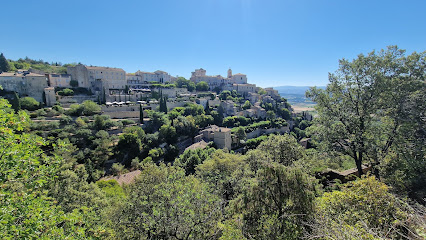
Mines Bruoux
Discover the enchanting Mines Bruoux, where history and nature blend in a breathtaking underground ochre experience in Provence.
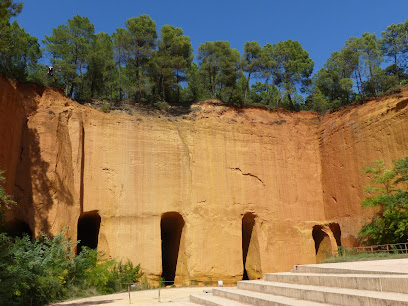
Forêt des cèdres du Luberon
Unwind in the Forêt des Cèdres du Luberon, a stunning forest in Bonnieux, France, perfect for hiking, picnicking, and embracing nature's beauty.
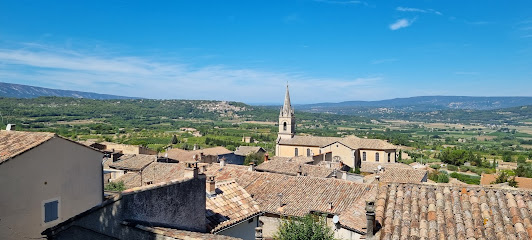
Château de Lacoste
Discover the enchanting Château de Lacoste, a historical castle in Provence, rich in culture and breathtaking views, perfect for every traveler.
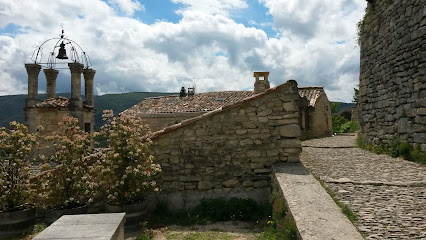
Pont Julien
Explore the stunning Pont Julien, a timeless Roman bridge in Provence that blends history, beauty, and breathtaking landscapes.
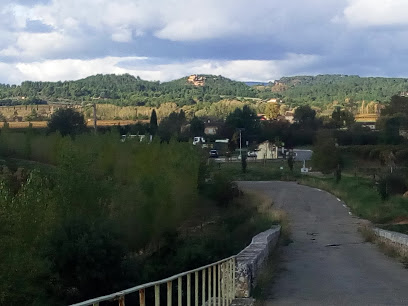
Moulin de Jérusalem
Explore the rich heritage of Provence at Moulin de Jérusalem, a historic windmill museum in the heart of Goult, with captivating exhibits and stunning views.
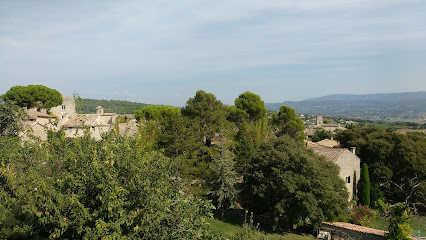
Fort de Buoux
Explore the ancient fortress of Fort de Buoux in Provence, where history meets breathtaking views and captivating landscapes.
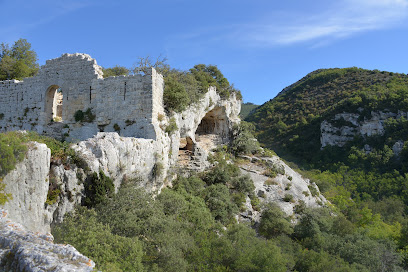
Hôtel Restaurant Panoramique César - Logis Hôtel
Explore the best of Provence at Hôtel Restaurant Panoramique César - a culinary haven with stunning views and authentic French cuisine.

Le Carillon
Experience authentic French cuisine in the heart of Provence at Le Carillon, a charming restaurant that delights with seasonal flavors and local ingredients.
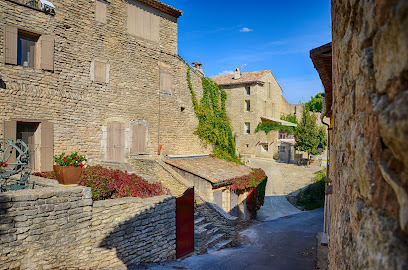
Saint-Hilaire Ancienne Abbaye
Explore the tranquil beauty and rich history of Saint-Hilaire Ancienne Abbaye in Provence, a serene retreat for culture and nature lovers.
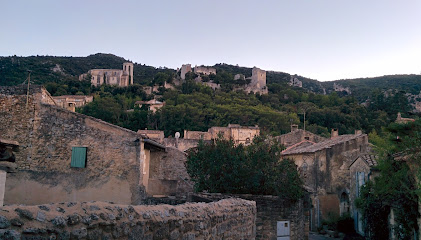
Unmissable attractions to see
Parc naturel régional du Luberon
Discover the enchanting landscapes, hilltop villages, and rich cultural heritage of the Parc Naturel Régional du Luberon, a protected haven in the heart of Provence.
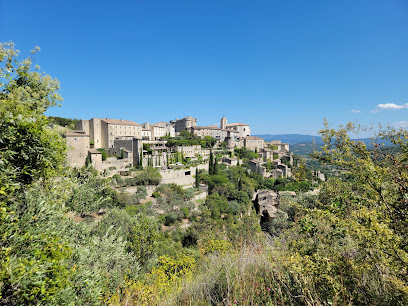
L'Isle-sur-la-Sorgue Market
Experience the vibrant heart of Provence at L'Isle-sur-la-Sorgue Market, a captivating blend of local flavors, antique treasures, and the enchanting charm of the 'Venice of Provence.'
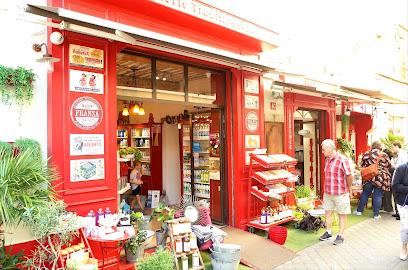
The Provençal Colorado
Discover the Provençal Colorado in Rustrel: A breathtaking landscape sculpted by ochre mining, offering vibrant colors and unique hiking trails in the heart of the Luberon.
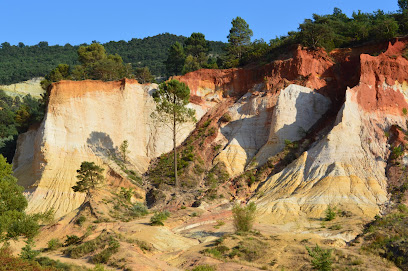
Mines Bruoux
Explore the depths of Provence's ochre history at the Mines de Bruoux in Gargas, a subterranean world of vibrant colors and fascinating stories from the region's industrial past.
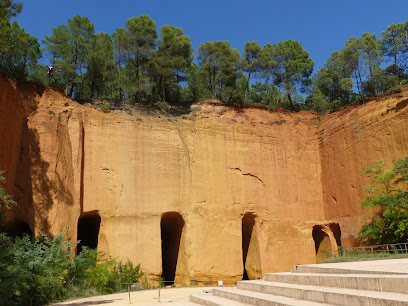
Fort Saint-André
Explore a formidable medieval fortress in Villeneuve-lès-Avignon, offering panoramic views, rich history, and a glimpse into 14th-century French military architecture and royal power.
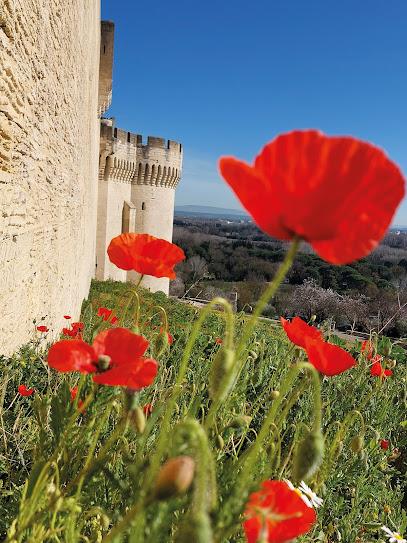
Forêt des cèdres du Luberon
Discover the enchanting Forêt des Cèdres du Luberon: a unique forest planted in 1861, offering hiking, cycling, and panoramic views in the heart of Provence's stunning natural beauty.
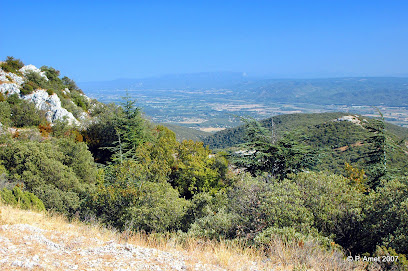
Le Café Van Gogh
Experience the artistic charm of Le Café Van Gogh in Arles, where delectable French cuisine meets the legacy of Vincent van Gogh.
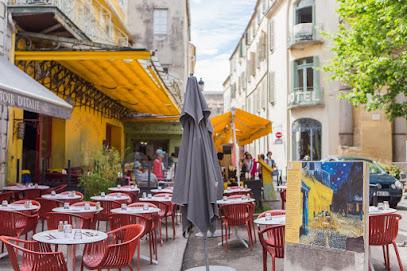
La Chartreuse-Centre national des écritures du spectacle
Discover the artistic heart of Villeneuve-lès-Avignon at La Chartreuse, where history and modern creativity converge in a stunning cultural landmark.
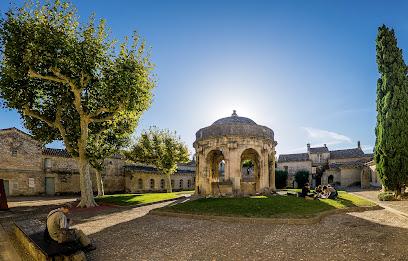
Jardin d'été
Discover Arles's Jardin d'été: a historic park offering shaded paths, beautiful fountains, and a tranquil escape in the heart of the city, nestled near the ancient Roman theater.
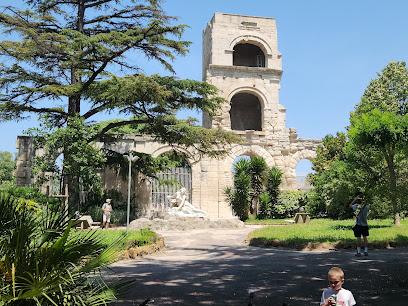
Collection Lambert Avignon
Explore a world-class collection of contemporary art in the heart of Avignon, featuring works by Basquiat, Twombly, Goldin, and more, within the walls of beautifully restored 18th-century mansions.
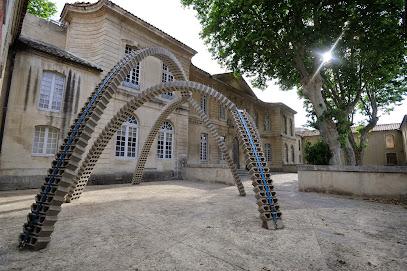
Chocolaterie Castelain
Indulge in exquisite artisan chocolates infused with local wines at Chocolaterie Castelain, a family-run gem in the heart of Châteauneuf-du-Pape's famed vineyards.
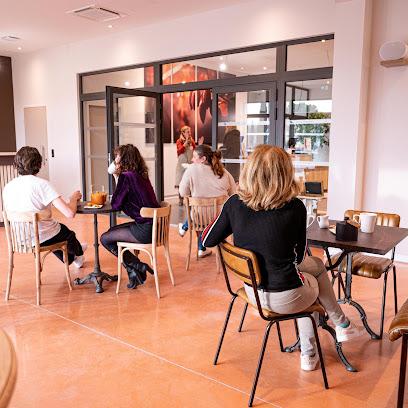
Les Antiques de Glanum
Explore Glanum, an exceptionally preserved Roman city near Saint-Rémy-de-Provence, offering a captivating glimpse into ancient life with temples, baths, and stunning mountain views.
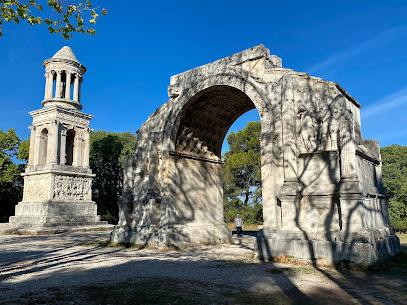
Musée Réattu
Discover art through the ages at Musée Réattu in Arles, from Jacques Réattu's masterpieces to Picasso drawings and a pioneering photography collection, all within a historic priory.
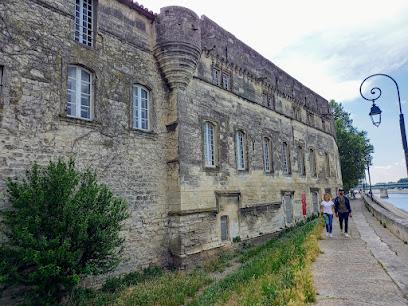
Moulin à huile d'olive & Domaine Bastide du Laval
Discover the secrets of Provençal olive oil at Moulin à huile d'olive & Domaine Bastide du Laval, where tradition meets organic farming in the heart of the Luberon, offering award-winning flavors.
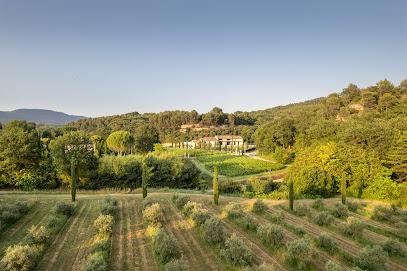
Moulin de Jérusalem
Discover the Moulin de Jérusalem in Goult, a beautifully restored 17th-century windmill offering panoramic views and a glimpse into Provence's rich agricultural heritage and captivating history.
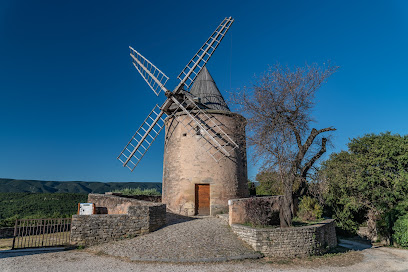
Essential places to dine
Bistrot le 5
Experience authentic French cuisine at Bistrot le 5 in Ménerbes – where every meal is a celebration of local flavors and beautiful surroundings.
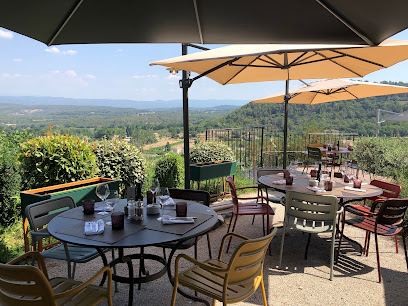
LA BERGERIE
Discover La Bergerie: A charming French restaurant in Maubec offering authentic cuisine and breathtaking views.
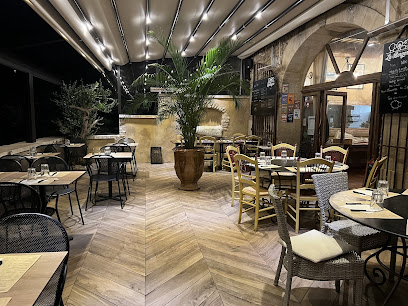
La Trinquette
Experience authentic French and Mediterranean cuisine amidst stunning views in picturesque Gordes at La Trinquette.
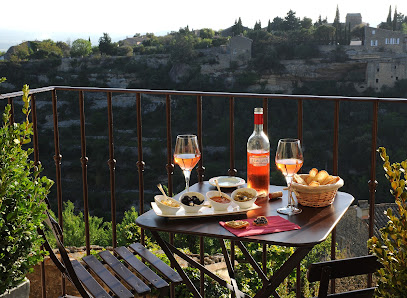
Café de la Poste
Experience authentic French cuisine at Café de la Poste in Goult - a charming culinary gem nestled in the heart of Provence.
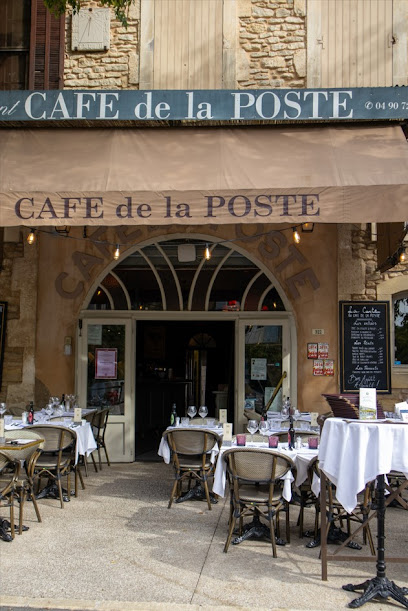
Cafe de France
Discover the culinary delights of Café de France in Lacoste - where authentic French cuisine meets charming ambiance.
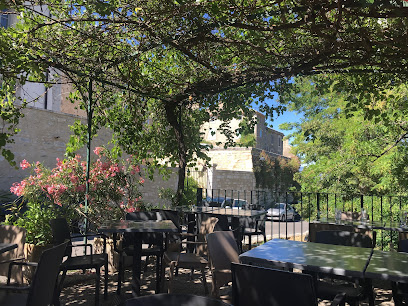
L'Estellan
Experience exquisite French cuisine at L'Estellan in Gordes, where traditional flavors meet modern elegance amidst stunning Provençal landscapes.
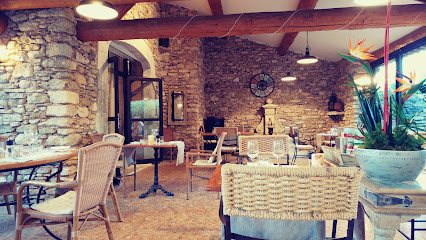
La Terrasse Des Cigales
Experience exquisite French cuisine at La Terrasse Des Cigales in Mérindol, where every dish tells a story of tradition and flavor.
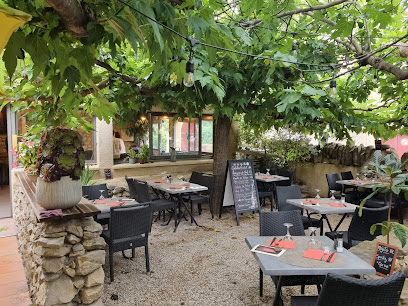
L'AUBERGE DES CARRIERES LUBERON
Experience authentic French cuisine at L'Auberge des Carrières, where every dish tells a story of Provence's rich culinary heritage.
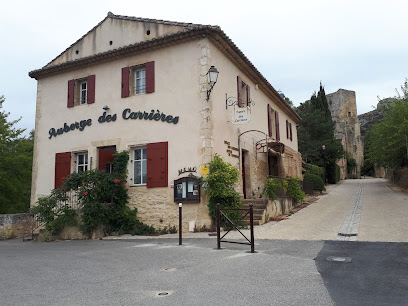
La Bergerie
Experience authentic French cuisine in Bonnieux at La Bergerie—where seasonal flavors meet stunning Provençal scenery.
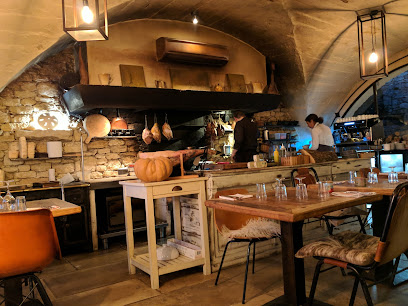
La Terrasse
Discover La Terrasse: A charming French-Mediterranean restaurant in Goult offering exquisite local flavors and stunning views.
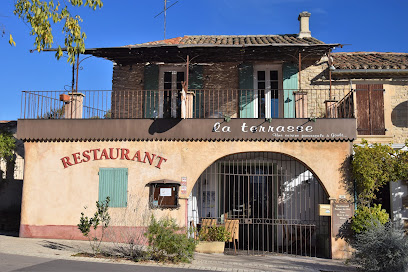
La Bastide du Grand Tilleul
Discover exquisite French and Mediterranean cuisine at La Bastide du Grand Tilleul, a culinary haven in Mérindol.
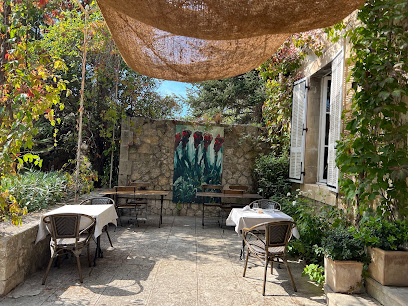
Le Carillon
Experience the flavors of Provence at Le Carillon, a delightful French restaurant in Goult serving authentic cuisine and local wines.
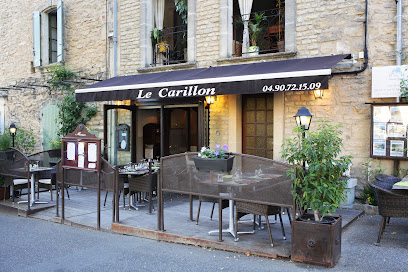
Café du Progrès
Discover the charm of Café du Progrès in Ménerbes – where authentic French cuisine meets warm hospitality amidst stunning landscapes.
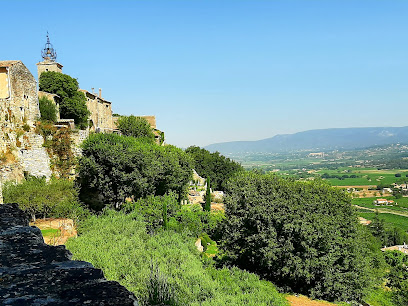
Restaurant La Flambée
Experience exquisite French and Italian flavors in the charming village of Bonnieux at Restaurant La Flambée.
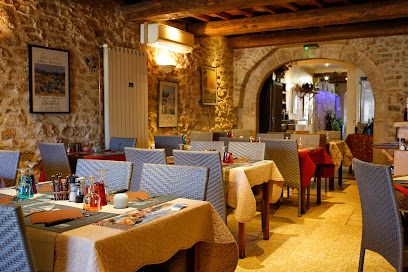
Restaurant Un P'tit Coin De Cuisine
Experience authentic French cuisine with Mediterranean flair at Restaurant Un P'tit Coin De Cuisine in beautiful Bonnieux.
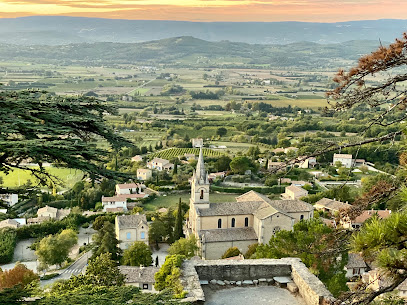
Markets, malls and hidden boutiques
Le Potager Du Chateau
Experience the authentic taste of Provence at Le Potager Du Chateau, a charming store in Gordes offering fresh pasta, fruits, and exquisite local wines.
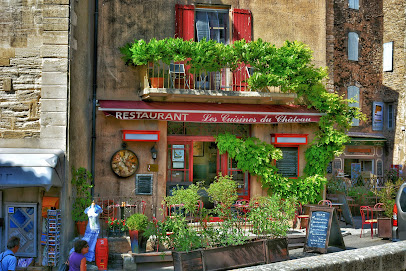
Ladurée
Discover the elegance of French pastry at Ladurée, a gourmet cake shop in Gordes, known for its exquisite macarons and delightful teas.
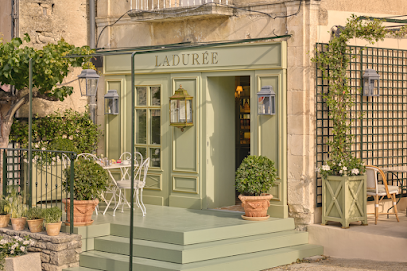
Charlotte Boutik
Explore Charlotte Boutik in Gordes for exquisite gifts, unique costume jewelry, and charming home goods that embody the spirit of Provence.
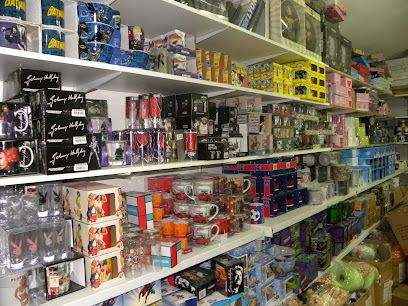
Eclectic-Art
Explore a unique antique store in Cavaillon offering art restoration, collectibles, and handmade crafts for the discerning traveler.
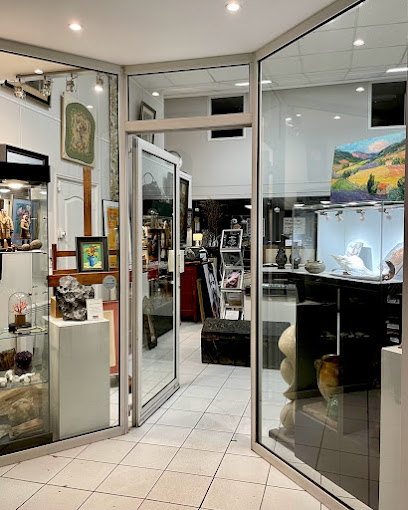
L'OCCITANE EN PROVENCE
Experience the essence of Provence at L'OCCITANE EN PROVENCE, where beauty meets nature in every product.
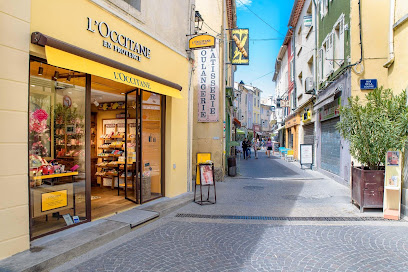
Rayne
Discover Rayne in Cavaillon: Your go-to boutique for stylish men's and women's clothing, accessories, and exquisite leather goods.
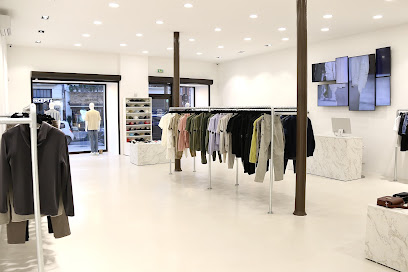
Luberone
Discover stylish men's and women's clothing at Luberone in Bonnieux, where fashion meets the charm of Provence.
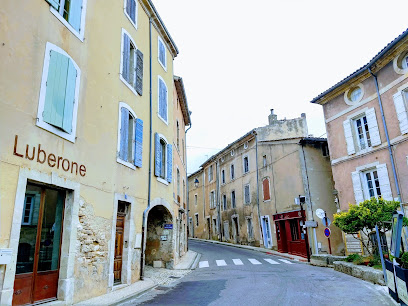
Coup de Coeur
Explore Coup de Coeur in La Roque-d'Anthéron for unique gifts and local artisan treasures that capture the spirit of Provence.
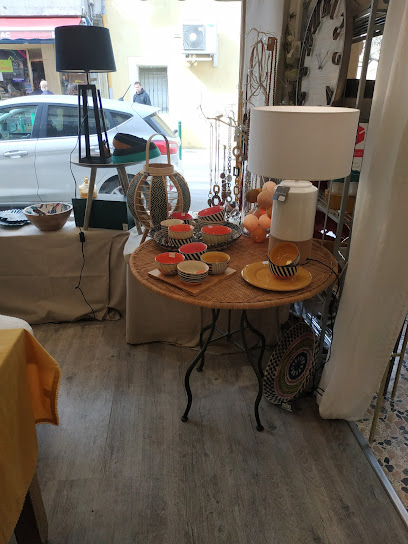
Epicerie du Luberon
Explore the flavors of Provence at Epicerie du Luberon, where local produce, gourmet products, and artisanal delights come together in a charming grocery store.
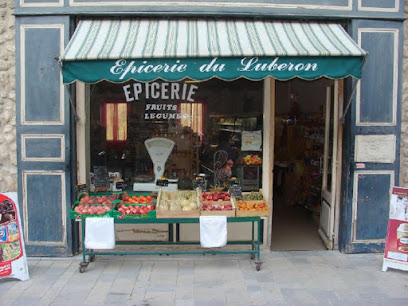
La CUC’ Factory I Artisanat local
Explore La CUC’ Factory: a treasure trove of local artistry and unique gifts in the heart of Cucuron, France, perfect for every traveler.
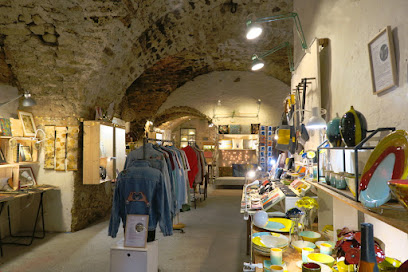
La Colline
Explore La Colline, a charming store in Lourmarin, offering unique local goods and a taste of Provence's rich artisan culture.
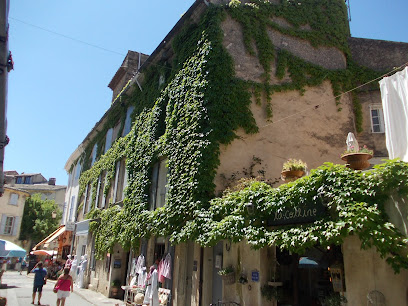
Le Château du Bois Provence
Explore Le Château du Bois Provence, the ultimate destination for lavender-infused cosmetics and authentic Provençal experiences.
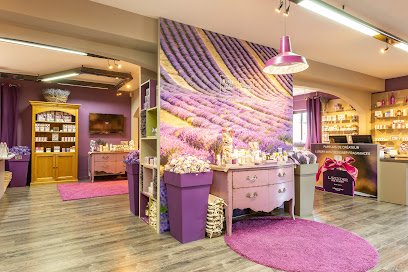
COLOURS
Explore COLOURS in Oppède for a unique selection of home goods that embody the rustic charm and vibrant spirit of Provence.
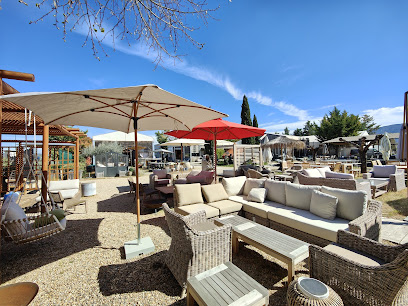
Vintage
Discover unique fashion trends at Vintage, the premier men's and women's clothing store in Cavaillon, France.
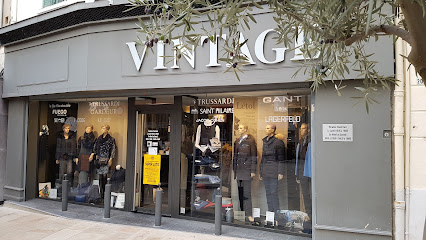
Un weekend a Gordes
Explore Un Weekend à Gordes, a charming boutique gift shop in the heart of Provence, offering unique souvenirs and local artisan treasures for every traveler.
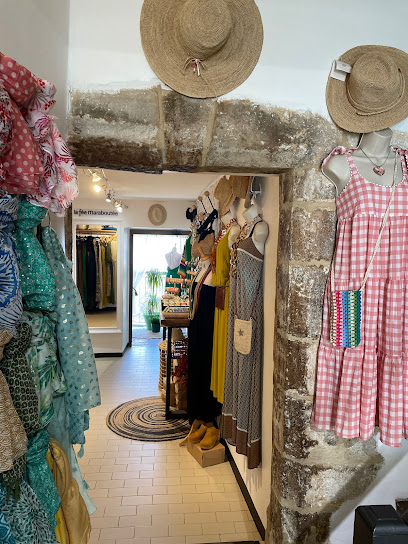
Essential bars & hidden hideouts
Bistrot le 5
Experience the essence of Provence at Bistrot le 5, where authentic French cuisine meets a charming atmosphere in the heart of Ménerbes.
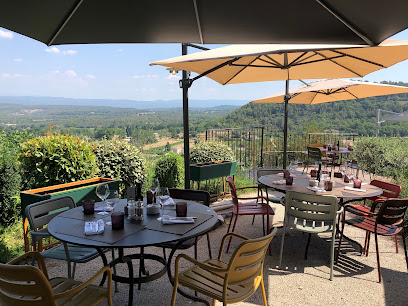
Le Cercle Républicain
Discover Le Cercle Républicain in Gordes, a delightful bar and café offering stunning views, local flavors, and a charming atmosphere in the heart of Provence.
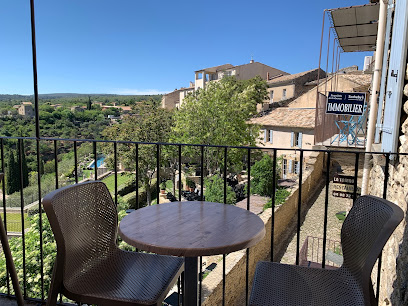
Brasserie St André
Experience the essence of Provence at Brasserie St André, where authentic French cuisine meets stunning Luberon views.
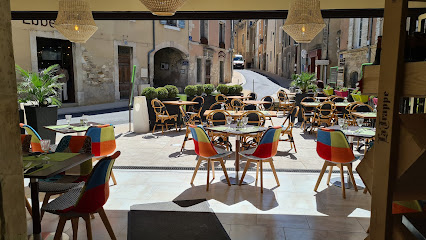
Café du Progrès
Experience the heart of Provençal culture at Café du Progrès, a charming bistro in Ménerbes offering delicious local cuisine and warm hospitality.
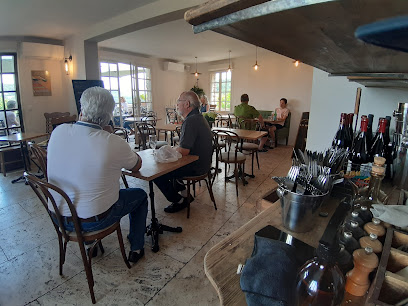
Cosy Pub
Experience the vibrant atmosphere and exquisite flavors at Cosy Pub, Cavaillon's premier cocktail bar and restaurant.
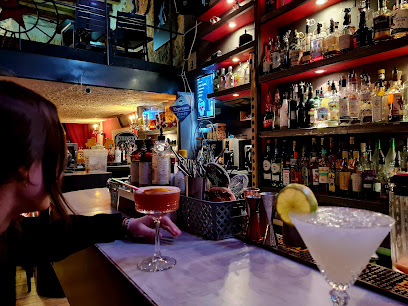
Bistrot Le Terrail
Discover the flavors of France at Bistrot Le Terrail in Bonnieux, a cozy bistro serving local cuisine in a charming setting.
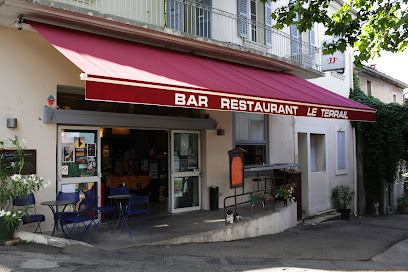
Bar Nulle Part Ailleurs
Experience the charm of Bar Nulle Part Ailleurs in Lauris, where delightful drinks and a warm atmosphere create unforgettable moments.
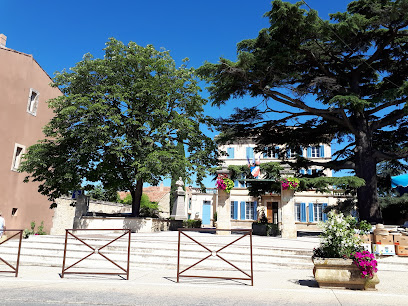
Bar de l'arquet
Enjoy a delightful drink in the heart of L'Isle-sur-la-Sorgue at Bar de l'arquet, where local charm meets a vibrant atmosphere.
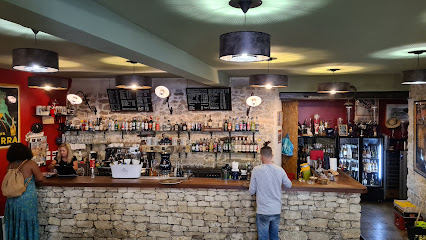
La Cave à Aimé - Mérindol
Experience the charm of La Cave à Aimé, a delightful wine cellar in Mérindol, showcasing the finest local wines and authentic Provençal culture.
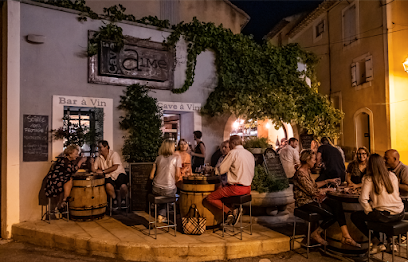
Le Tonneau
Discover the enchanting Le Tonneau in Lourmarin, a wine bar that offers an exquisite selection of local wines in a charming atmosphere.
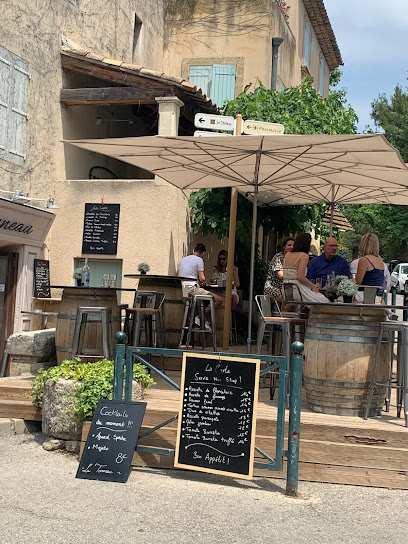
Le Galoubet
Discover the essence of Mediterranean dining at Le Galoubet in Ménerbes, where exquisite flavors meet a charming atmosphere.
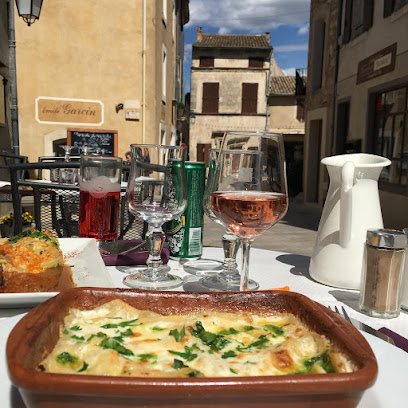
Brasserie Artisanale Lub'
Explore the vibrant craft beer culture at Brasserie Artisanale Lub', a charming brewpub in Taillades offering unique flavors and a cozy atmosphere.
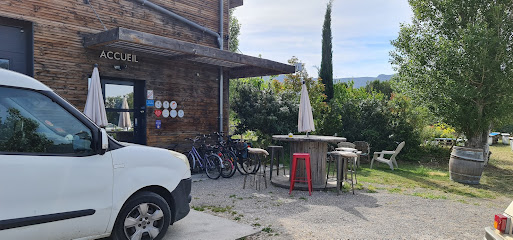
Restaurant Bar Tabac d'Alain Sanchez
Discover the cozy charm of Bar Tabac d'Alain Sanchez in Goult, where authentic French cuisine and local wines await amidst a welcoming Provençal atmosphere.
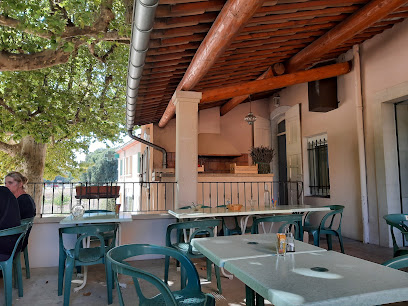
Bar Le Troquet
Discover Bar Le Troquet, a lively bar in Apt, where authentic drinks meet local charm in a cozy atmosphere perfect for socializing.
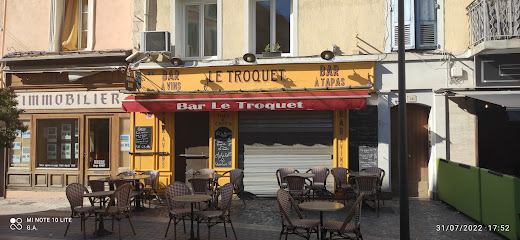
Local Phrases about Luberon
-
- HelloBonjour
[bon-zhoor] - GoodbyeAu revoir
[oh ruh-vwahr] - YesOui
[wee] - NoNon
[nohn] - Please/You're welcomeS'il vous plaît/De rien
[seel voo pleh/duh ryen] - Thank youMerci
[mehr-see] - Excuse me/SorryExcusez-moi/Désolé
[ehk-skew-zay mwah/day-zoh-lay] - How are you?Comment ça va?
[koh-mohn sah vah] - Fine. And you?Bien. Et vous?
[byen. ay voo] - Do you speak English?Parlez-vous anglais?
[par-lay voo ahn-glay] - I don't understandJe ne comprends pas
[zhuh nuh kohm-prahnd pah]
- HelloBonjour
-
- I'd like to see the menu, pleaseJe voudrais voir le menu, s'il vous plaît
[zhuh voo-dray vwar luh muh-nyoo, seel voo pleh] - I don't eat meatJe ne mange pas de viande
[zhuh nuh mahnj pah duh vee-ahnd] - Cheers!Santé!
[sahn-tay] - I would like to pay, pleaseJe voudrais payer, s'il vous plaît
[zhuh voo-dray pay-ay, seel voo pleh]
- I'd like to see the menu, pleaseJe voudrais voir le menu, s'il vous plaît
-
- Help!À l'aide!
[ah layd] - Go away!Allez-vous en!
[ah-lay voo ahn] - Call the Police!Appelez la police!
[ah-puh-lay lah poh-lees] - Call a doctor!Appelez un médecin!
[ah-puh-lay uh meh-deh-sahn] - I'm lostJe suis perdu
[zhuh swee pair-doo] - I'm illJe suis malade
[zhuh swee mah-lahd]
- Help!À l'aide!
-
- I'd like to buy...Je voudrais acheter...
[zhuh voo-dray ah-shuh-tay] - I'm just lookingJe regarde juste
[zhuh ruh-gahrd juhst] - How much is it?Combien ça coûte?
[kohn-byen sah coot] - That's too expensiveC'est trop cher
[say troh shair] - Can you lower the price?Pouvez-vous baisser le prix?
[poo-vay voo bay-say luh pree]
- I'd like to buy...Je voudrais acheter...
-
- What time is it?Quelle heure est-il?
[kel uhr ay teel] - It's one o'clockIl est une heure
[eel ay oon uhr] - Half past (10)Dix heures et demi
[dees uhr ay duh-mee] - MorningMatin
[mah-tahn] - AfternoonAprès-midi
[ah-pray mee-dee] - EveningSoir
[swahr] - YesterdayHier
[yehr] - TodayAujourd'hui
[oh-zhoor-dwee] - TomorrowDemain
[duh-mahn] - 1Un
[uhn] - 2Deux
[duh] - 3Trois
[twah] - 4Quatre
[kat-ruh] - 5Cinq
[sank] - 6Six
[sees] - 7Sept
[sept] - 8Huit
[wheet] - 9Neuf
[nuff] - 10Dix
[dees]
- What time is it?Quelle heure est-il?
-
- Where's a/the...?Où se trouve...?
[oo suh troov] - What's the address?Quelle est l'adresse?
[kel ay lah-dress] - Can you show me (on the map)?Pouvez-vous me montrer (sur la carte)?
[poo-vay voo muh mohn-tray (soor lah kart)] - When's the next (bus)?Quand est le prochain (bus)?
[kahn ay luh proh-shahn (boos)] - A ticket (to ....)Un billet (pour ....)
[uhn bee-yay (poor)]
- Where's a/the...?Où se trouve...?
History of Luberon
-
The history of Luberon dates back to prehistoric times, with evidence of human habitation found in various caves and rock shelters in the region. The area was later inhabited by the Ligurians, a tribe known for their hilltop settlements and advanced metalworking skills.
-
During the Roman era, Luberon became an important part of the Provincia Romana, now known as Provence. The Romans left a significant mark on the region, constructing roads, aqueducts, and villas. Notable remnants of this period include the Pont Julien, a well-preserved Roman bridge across the Calavon River.
-
The Middle Ages saw the construction of numerous fortresses and castles in Luberon, many of which still stand today. Villages such as Gordes and Lacoste feature impressive medieval architecture, with stone ramparts and narrow, winding streets that transport visitors back in time.
-
The Renaissance brought a period of cultural and architectural revival to Luberon. The Château de Lourmarin is a prime example, blending Gothic and Renaissance styles. The region also played a role in the religious conflicts of the Reformation, with many Huguenots seeking refuge in its remote villages.
-
Luberon, like much of France, was affected by the tumultuous events of the French Revolution. The region saw the rise of local revolutionary committees and the decline of feudal privileges. Many of the aristocratic estates were confiscated and redistributed to the people.
-
During World War II, Luberon was a hub of activity for the French Resistance. The region's rugged terrain and secluded villages provided ideal hiding places for resistance fighters. Notable figures, such as Jean Moulin, used the area as a base for organizing efforts against the German occupation.
-
After World War II, Luberon experienced a period of revival. The picturesque villages and landscapes attracted artists, writers, and intellectuals, contributing to a cultural renaissance. Today, Luberon is celebrated for its stunning natural beauty, charming villages, and rich historical heritage, drawing visitors from around the world.
Luberon Essentials
-
Luberon is located in the Provence-Alpes-Côte d'Azur region of southeastern France. The nearest international airport is Marseille Provence Airport, approximately 80 kilometers away. From the airport, you can rent a car, take a taxi, or use public transport to reach Luberon. The region is also accessible by train; the nearest major train station is in Avignon, which is well-connected to Paris and other major cities via the TGV high-speed rail service. From Avignon, you can rent a car or take a regional bus to reach various towns and villages in Luberon.
-
While renting a car is the most convenient way to explore Luberon, public transportation options are also available. Regional buses connect the main towns and villages, but service can be infrequent. Taxis are available but can be expensive for longer journeys. Biking is a popular option for exploring the scenic countryside, and bike rentals are widely available. Walking is also feasible within individual towns and villages, given their compact size.
-
The official currency in France is the Euro (EUR). Major credit and debit cards are widely accepted in hotels, restaurants, and shops, but it is advisable to carry some cash for smaller establishments and markets. ATMs are available in most towns and villages in Luberon. It is recommended to notify your bank of your travel plans to avoid any issues with card transactions.
-
Luberon is generally a safe destination for tourists. However, like any travel destination, it is important to take standard precautions. Avoid leaving valuables in plain sight, especially in parked cars. While there are no specific high-crime areas targeting tourists, it is wise to stay vigilant, particularly in crowded markets and tourist spots.
-
In case of emergency, dial 112 for immediate assistance. There are local police stations and medical facilities in the main towns. It is recommended to have travel insurance that covers medical emergencies. Pharmacies are available in most towns, where you can purchase over-the-counter medications. For minor health issues, pharmacists can often provide advice and treatment options.
-
Fashion: Do dress smart-casual when dining out or visiting cultural sites. Avoid overly casual or revealing clothing. Religion: Do respect local customs and traditions. Dress modestly when visiting churches or religious sites. Public Transport: Do validate your ticket before boarding buses. Don't eat or drink on public transport. Greetings: Do greet people with a 'Bonjour' and a handshake or a kiss on both cheeks if you know them well. Eating & Drinking: Do try local delicacies and wines. Don't rush meals; savor the experience as the French do.
-
To experience Luberon like a local, visit the weekly markets in towns like Apt and Lourmarin, where you can buy fresh produce, artisanal goods, and local crafts. Engage with locals, who are often friendly and willing to share stories about the region's history and culture. Don't miss hiking the scenic trails in the Luberon Regional Natural Park or visiting the picturesque villages of Gordes and Roussillon, known for their stunning landscapes and unique architecture.
Trending Landmarks in Luberon
-
Le Sentier des Ocres
-
Parc naturel régional du Luberon
-
The Provençal Colorado
-
Abbaye Notre-Dame de Sénanque
-
Château de Lourmarin
-
Village des Bories
-
Mines Bruoux
-
Forêt des cèdres du Luberon
-
Château de Lacoste
-
Pont Julien
-
Moulin de Jérusalem
-
Fort de Buoux
-
Hôtel Restaurant Panoramique César - Logis Hôtel
-
Le Carillon
-
Saint-Hilaire Ancienne Abbaye
Nearby Cities to Luberon
-
Things To Do in Avignon
-
Things To Do in Marseille
-
Things To Do in Nîmes
-
Things To Do in Montpellier
-
Things To Do in Saint-Tropez
-
Things To Do in Cannes
-
Things To Do in Grenoble
-
Things To Do in Nice
-
Things To Do in Les Moneghetti
-
Things To Do in Moneghetti
-
Things To Do in Fontvieille
-
Things To Do in La Condamine
-
Things To Do in Monaco-Ville
-
Things To Do in Monte Carlo
-
Things To Do in Larvotto













